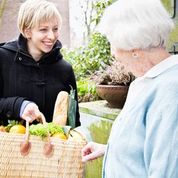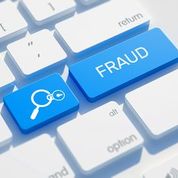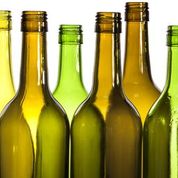Community Safety Partnership

Tameside Community Safety Strategy 2022-2025
Contents
Domestic AbuseMental Health & Well-being
Anti-Social Behaviour
Adult Services
Information for Young People
Frauds & Scams
How to be safe with Alcohol
Stay Safe This Summer
Domestic Abuse
 If you or someone you know is at immediate risk of harm, please call the police on 999 now.
If you or someone you know is at immediate risk of harm, please call the police on 999 now.We know that Covid-19, will have serious impacts on the lives of those living with domestic abuse. For some people, home is not always a safe place, which might mean that the prospect of physical distancing or self-isolation may be causing some adults and children to feel additionally anxious, at an already difficult time.
Support is still being provided and is available - https://www.tameside.gov.uk/domesticabuse
Mental Health & Wellbeing
 When you’re staying at home, it’s important to take care of your mind as well as your body. You may feel bored, frustrated, or lonely. You may also be low, worried or anxious, or concerned about your finances, your health, or the health of those close to you.
When you’re staying at home, it’s important to take care of your mind as well as your body. You may feel bored, frustrated, or lonely. You may also be low, worried or anxious, or concerned about your finances, your health, or the health of those close to you.It’s okay to feel like this – everyone reacts in their own way to challenging events and uncertainty. It’s important to remember that staying at home may be difficult, but you’re helping to protect yourself and others by doing it.
Anti-Social Behaviour
Anti-social behaviour is a broad term used to describe the day to day incidents of crime, nuisance and disorder that make many people’s lives a misery – from litter and vandalism, to public drunkenness or noisy or abusive neighbours.
Such a wide range of behaviours means that the responsibility for dealing with anti-social behaviour and tackling local issues affecting resident’s quality of life is shared between a number of agencies, particularly the Council, the Police and local Housing Providers.
Adult Services
 Tameside Adult Services offer a number of services that are focused on supporting people and their carers to live independently in the community. Adult Services can provide information, advice and services such as assistive technology, equipment and reablement to help people feel supported and safe at home and to maintain their health and wellbeing.
Tameside Adult Services offer a number of services that are focused on supporting people and their carers to live independently in the community. Adult Services can provide information, advice and services such as assistive technology, equipment and reablement to help people feel supported and safe at home and to maintain their health and wellbeing. When an Adult and/or Carer have identified support needs they may be eligible for an assessment under the Care Act 2014.
For further information and support see - https://www.tameside.gov.uk/SocialCareServices/Adults
Information for Young People
 For the teenagers and young people living in Tameside, help and support is available to you during this Covid-19 period. Keeping well can be challenging in our normal lives, but we might need to take a little extra care of ourselves at the moment.
For the teenagers and young people living in Tameside, help and support is available to you during this Covid-19 period. Keeping well can be challenging in our normal lives, but we might need to take a little extra care of ourselves at the moment.Fraud and Scams
 There is an increased risk of fraud and scams.
There is an increased risk of fraud and scams.Phishing emails: There have been reports of coronavirus-themed phishing emails. These attempt to trick people into opening malicious attachments which could lead to fraudsters stealing people’s personal information, email logins and passwords, and banking details. Don’t click on the links or attachments in suspicious emails, and never respond to unsolicited messages and calls that ask for your personal or financial details.
Shopping online: If you’re making a purchase from a company/person you don’t know/trust, carry out some research first and ask a friend/family member for advice before completing the purchase. If you decide to go ahead with the purchase, use a credit card if you have one, as most major credit card providers insure online purchases.
COVID-19 scams identified include:
Doorstep crime
Criminals targeting older people on their doorstep and offering to do their shopping. Thieves take the money and do not return.
Doorstep cleansing services that offer to clean drives and doorways to kill bacteria and help prevent the spread of the virus.
Online scams
Email scams that trick people into opening malicious attachments, which put people at risk of identity theft with personal information, passwords, contacts and bank details at risk. Some of these emails have lured people to click on attachments by offering information about people in the local area who are affected by coronavirus.
Fake online resources – such as false Coronavirus Maps – that deliver malware and steal information which can then be used to infiltrate a variety of sensitive data. A prominent example that has deployed malware is ‘corona-virus-map[dot]com’.
Refund scams
Companies offering fake holiday refunds for individuals who have been forced to cancel their trips. People seeking refunds should also be wary of fake websites set up to claim holiday refunds.
Counterfeit goods
Fake sanitisers, face masks and Covid19 swabbing kits sold online and door-to-door. These products can often be dangerous and unsafe. There are reports of some potentially harmful hand sanitiser containing glutaral (or glutaraldehyde), which was banned for human use in 2014.
Telephone scams
As more people self-isolate at home there is an increasing risk that telephone scams will also rise, including criminals claiming to be your bank, mortgage lender or utility company.
Donation scams
There have been reports of thieves extorting money from consumers by claiming they are collecting donations for a COVID-19 ‘vaccine’.
Loan sharks
Illegal money lenders are expected to prey on people’s financial hardship, lending money before charging extortionate interest rates and fees through threats and violence.
For more information and support please see here:
https://www.tameside.gov.uk/tradingstandards
https://www.gmp.police.uk/ro/report/ocr/af/how-to-report-a-crime/
How to be safe with alcohol
 There are a few simple steps you can take to keep yourself as safe as possible if you are concerned about your alcohol intake.
There are a few simple steps you can take to keep yourself as safe as possible if you are concerned about your alcohol intake.If you are drinking to cope with issues like boredom or anxiety, there is a danger that if those problems increase, so does the drinking.
This can quickly push someone into drinking unhealthy levels of alcohol without noticing.
So here’s an easy way to check how safe your drinking is: Try going to your Appstore or www.drinksmeter.com and download the Drinksmeter App.
The App asks you a series of helpful and simple questions. All you need to do is to be honest; knowing that no-one else will see your answers. It will help you to assess the safety of your current drinking levels, choose a level that you are happy with and then monitor how well you keep to that level.
If you do find that the amount you’re drinking is higher than you expected, and that this puts you in an Increasing Risk range, a sensible approach is to reduce slowly. If you regularly drink 30 units per week – for example about 12 to 15 cans of beer or cider, or above 3 bottles of wine – to suddenly go ‘dry’ might sound a good goal, but could be more difficult for you than reducing what you drink by a manageable amount over a few weeks.
In some cases, suddenly stopping alcohol altogether may cause dangerous side effects, so a gradual approach is very important.
This starts by keeping a diary to record what you normally drink. The Drinksmeter app is a good way of doing this, but don’t be afraid to ask for help or advice too.
They also advise starting by reducing by 10% for a few days. At this stage, if you start to have any withdrawal symptoms, it means you’re cutting down too fast.
Withdrawal symptoms could be sweating, headaches, confusion, blurred vision, lack of sleep, or imagining seeing or hearing things.
At their most severe, withdrawal symptoms can lead to fits, which are dangerous. This is why a very gradual process is the safest approach, so take it steady.
If you start to experience any of those withdrawal symptoms, even mild ones, slow down how much you are reducing what you drink.
Then keep drinking at your most recent safe level for another week, before starting to cut down again. Consider cutting down by 5% instead of 10% each week.
Other things that help at this stage of the process include:
- Asking someone close to you for help. They could help you keep a record of what you drink, or look after your alcohol for you. Having someone going through this with you makes it both easier and more safe.
- Gradually switching to a lower-strength drink. For example, replace a can of super-strength lager with a standard-strength can.
- Adding water or a mixer to your drinks.
- Considering alternating, so that you drink one non-alcoholic drink for every alcoholic drink you have.
- Trying to eat healthily: avoid sugar, and try to eat plenty of brown rice and wholemeal bread. These are good for your vitamin B12 (thiamine) levels.
- Keeping hydrated with plenty of non-alcoholic drinks – but avoiding too much coffee and energy drinks as these can cause sleep problems.
For further support and information, please see here: https://www.tameside.gov.uk/substanceproblems
Stay Safe This Summer
The annual Safe4Summer campaign brings together Greater Manchester Fire and Rescue Service, Greater Manchester Police, Greater Manchester Combined Authority, local councils and other key partners, with the ultimate aim of tackling anti-social behaviour amongst young people over the summer months. This includes trying to reduce the number of deliberate fires in our community and within open spaces, such as moorland, and focusing on keeping young people safe around water.While young people are off school, whether that be due to the COVID-19 pandemic or the scheduled summer holidays, there may be temptation for them to get involved in things that seem like harmless fun but can often lead to serious consequences. This summer, partners are asking the public to help make communities a safer and more enjoyable place to live, especially during these unprecedented times, and are encouraging parents and carers to take an active interest in their children’s whereabouts and planned activities in line with the Government’s guidance, and be aware of the risks of seemingly fun situations when they get out of hand.
Please visit the Safe4Summer website for more summer safety advice for people of all ages; to take a look at the digital education resources available to download; for a chance for young people aged 5-16 to get involved with a mini creative project and to take part in an interactive quiz with the chance of winning an iPad. Also follow #Safe4Summer on social media throughout the summer to keep up to date with activities and get involved with our campaign.
We want everyone to have a great summer but a safe one too.
Useful Links
NHS – Latest information - https://www.nhs.uk/conditions/coronavirus-covid-19/
Educate Against Hate - https://educateagainsthate.com/
Think You Know – staying safe online - https://www.thinkuknow.co.uk/

